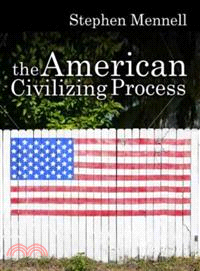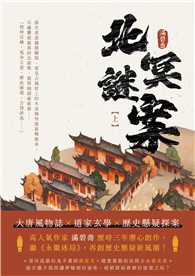| FindBook |
有 1 項符合
THE AMERICAN CIVILIZING PROCESS的圖書 |
 |
The American Civilizing Process 作者:MENNELL 出版社:BLACKWELL PUB 出版日期:2007-08-19 |
| 圖書館借閱 |
| 國家圖書館 | 全國圖書書目資訊網 | 國立公共資訊圖書館 | 電子書服務平台 | MetaCat 跨館整合查詢 |
| 臺北市立圖書館 | 新北市立圖書館 | 基隆市公共圖書館 | 桃園市立圖書館 | 新竹縣公共圖書館 |
| 苗栗縣立圖書館 | 臺中市立圖書館 | 彰化縣公共圖書館 | 南投縣文化局 | 雲林縣公共圖書館 |
| 嘉義縣圖書館 | 臺南市立圖書館 | 高雄市立圖書館 | 屏東縣公共圖書館 | 宜蘭縣公共圖書館 |
| 花蓮縣文化局 | 臺東縣文化處 |
|
|
- 圖書簡介
Since 9/11, the American government has presumed to speak and act in the name of 'civilization'. But isthat how the rest of the world sees it? And if not, why not?
Stephen Mennell leads up to such contemporary questions through a careful study of the whole span of American development, from the first settlers to the American Empire. He takes a novel approach, analysing the USA's experience in the light of Norbert Elias's theory of civilizing (and decivilizing) processes.
Drawing comparisons between the USA and other countries of the world, the topics discussed include:
American manners and lifestyles
Violence in American society
The impact of markets on American social character
American expansion, from the frontier to empire
The 'curse of the American Dream' and increasing inequality
The religiosity of American life
Mennell shows how the long-term experience of Americans has been of growing more and more powerful in relation to their neighbours. This has had all-pervasive effects on the way they see themselves, their perception of the rest of the world, and how the rest of the world sees them.
Mennell's compelling and provocative account will appeal to anyone concerned about America's role in the world today, including students and scholars of American politics and society. - 作者簡介
Stephen Mennell is Professor of Sociology at University College Dublin.
- 目次
Preface.
Prologue:.
1 ‘American Civilization’.
The Founding Fathers as Philosophes.
‘Progress’ and ‘American Civilization’.
Fugitive government and ‘American Civilization’.
‘Human nature’ and ‘American Civilization’.
European absolutism and ‘American Civilization’.
Conclusion.
2 ‘Fellow Americans’ and Outsiders.
Others: the Native Americans.
Others: the Blacks.
Others: the Europeans.
Anti-Americanism: How the outsiders view the established.
Conclusion.
3 American Manners under Scrutiny.
American manners books.
Americans observed.
Technology, hygiene and deference.
Victorianism.
Informalization.
Conclusion.
4 American Aristocracies.
The colonial gentry.
The South: American Junkers?.
The North: Working upper classes.
From cumulative to dispersed inequalities?.
A significant absence: an aristocracy of office.
Conclusion.
5 The Market Society.
The constraints of the market.
The constraints of organization.
Conclusion.
6 Violence and Aggressiveness.
Long-term trends in violence.
Is America peculiarly violent?.
Capital punishment.
Conclusion.
7 And wilderness is paradise enow: From Settlements to Independence.
Autarky, but not terra nullius.
Population.
Early phases of the American state formation process.
Conclusion.
8 Westward Look the Land is Bright: From Frontier to Empire.
Manifest destiny and latent dynamics: a necessary theoretical digression.
The balance between the planned and the unplanned in US territorial expansion.
‘Sovereignty’ as a function of power ratios.
The Frontier.
Beyond manifest destiny: the beginnings of an American empire.
Conclusion.
9 Integration Struggles.
Urbanization and resentment of the city.
Immigration.
Growth of the means of ruling.
The breakdown: the Civil War and its aftermath.
A central ambivalence: the armed forces.
Conclusion.
10 The Curse of the American Dream.
Equality and inequality in America.
The American welfare state.
Social mobility in America.
Conclusion: Upwards identification, not mutual identification?.
11 Involvement, Detachment and American Religiosity.
Fantasy and the growth of knowledge.
American religion in long-term perspective.
Some explanations.
Odd one out - Europe or the USA?.
Conclusion.
12 America and Humanity as a Whole.
‘American Social Character’: Diminishing contrasts, increasing varieties.
The problem of the American homo clausus: the We-I balance.
Market fundamentalism and diminishing foresight.
Functional de-democratization.
The American Empire.
Conclusion: path dependency in America and the world.
Notes.
Bibliography.
Index
|











